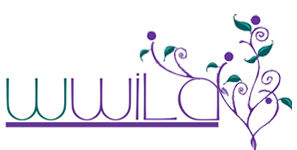Incidents of sexual assault reported by NDIS participants in NSW and SA
– Written by Talking Disability
A number of sexual assault reports have been made by National Disability Insurance Scheme (NDIS) participants in two states over a three month period.
The NDIS Quality and Safeguards Commission which has been overseeing the NDIS service provision of 115,000 participants in New South Wales and South Australia from 1 July 2018, received 184 reports of abuse or neglect within a three month period.
Of the reports, 68 of were referred to the police with almost half regarding sexual assault.
Co-Chief Executive Officer of People with Disability Australia, Therese Sands says the organisation was not shocked by this news.
“We hear every day about the appalling rates of violence, neglect and abuse of people with disability across the community,” she says.
“The new NDIS Quality and Safeguards Commission only covers disability services through the NDIS, so can just report on violence in these settings and for the 10 percent of people with disability who have an NDIS package.”
With the reports only the tip of the iceberg, the Commission will only regulate registered NDIS providers and is unable to protect people with disability from family abuse or neglect by people outside the service system, such as teachers or health clinicians.
Ms Sands is pleased the new NDIS Quality and Safeguards Commission is being transparent by disclosing the information at the last round of Senate Estimates hearings and hopes regularly making this data publicly available will expose the shocking toll of violence and abuse towards people with disability.
“We urgently need a Royal Commission into this horrifying violence against people with disability, to bring justice to the many, many people with disability who have experienced abuse,” she says.
“Much of the justice system isn’t accessible for people with disability, leaving them with little recourse or support.”
Children with disability are 3.4 times more likely to experience abuse and violence than their peers, women with disability experience domestic violence 37.3 percent more often than all women and women with intellectual disability are between 70-90 percent more likely to be raped or sexually abused.
“People with disability are demanding a Royal Commission, with the powers and breadth needed to look at the violence we experience in many parts of the community, not just disability services,” Ms Sands says.
“People with disability at school, mental health facilities, in out of home care, in prison and at home all need the justice of a Royal Commission now.”
Greens senator Jordon Steele-John says the news is “awful and horrific” but “not surprising to anyone in this space”.
“There is absolutely a profound crisis in this country when it comes to disabled people and violence, particularly violence of a sexual nature.”
Mr Steele-John says we are going into another year without a much-needed Royal Commission into the disability sector.
“Aged care is important but there is a huge disparity between how people reacted to the revelations there and how people reacted to exposes about abuse of disabled people.”
Ms Sands says the safest place for people with disability is in the community, not segregated in special schools, group homes, institutions or other settings.
“We have to continue to break down the barriers that keep people with disability separated from the community.”
“A Royal Commission would have the resources to commission research that could identify further rigorous safeguards that should be established to strengthen protections against violence and abuse.”

